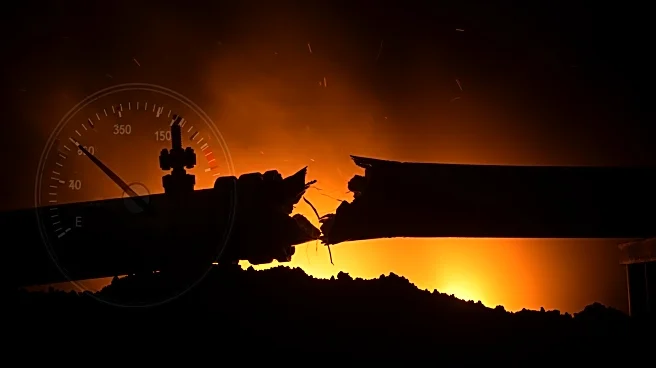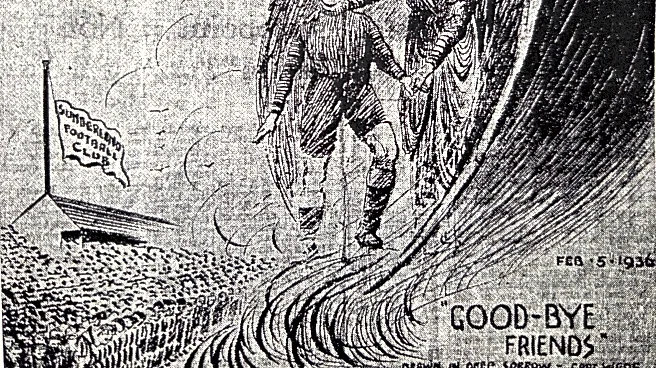What's Happening?
Ukraine has significantly increased its attacks on Russian energy infrastructure, focusing on oil refineries, pumping stations, and fuel trains. This strategy aims to disrupt the Russian war effort and daily life in Russia. The attacks have led to record-high gasoline prices in Russia, despite the government's ban on petrol exports. Ukrainian drones have targeted key facilities, including the Lukoil refinery in Volgograd and a large refinery in Saratov. These facilities account for a significant portion of Russia's oil production capacity. The attacks have caused gasoline shortages in several Russian regions and annexed Crimea, with the Russian government attributing the shortages to logistics issues.
Why It's Important?
The escalation of attacks by Ukraine on Russian energy infrastructure has significant implications for the Russian economy and its citizens. The resulting gasoline shortages and price increases are likely to exacerbate inflation and economic instability in Russia. This situation also highlights the vulnerability of critical infrastructure to military tactics, potentially influencing future geopolitical strategies. The disruption of Russian oil exports could have broader implications for global energy markets, particularly in Europe, where countries like Hungary and Slovakia rely on Russian oil. The situation underscores the complex interplay between military actions and economic consequences in the ongoing conflict.
What's Next?
Analysts predict that the gasoline shortages and high prices in Russia will persist for at least another month. The Russian government may need to extend its ban on gasoline exports to stabilize domestic prices and supply. Ukraine is expected to continue its strategy of targeting Russian energy infrastructure, potentially increasing the frequency and intensity of attacks. This could lead to further disruptions in Russian oil exports and additional economic challenges for Russia. The international community, particularly European countries affected by the disruption, may seek diplomatic solutions or increased energy cooperation to mitigate the impact.
Beyond the Headlines
The attacks on Russian energy infrastructure by Ukraine highlight the evolving nature of modern warfare, where economic and infrastructure targets are increasingly prioritized. This approach reflects a shift in military strategy, emphasizing the use of technology and long-range capabilities to achieve strategic objectives. The situation also raises ethical and legal questions about the targeting of civilian infrastructure in conflict zones. Additionally, the reliance on drones and other advanced technologies in warfare may prompt discussions about the regulation and control of such technologies in international conflicts.









